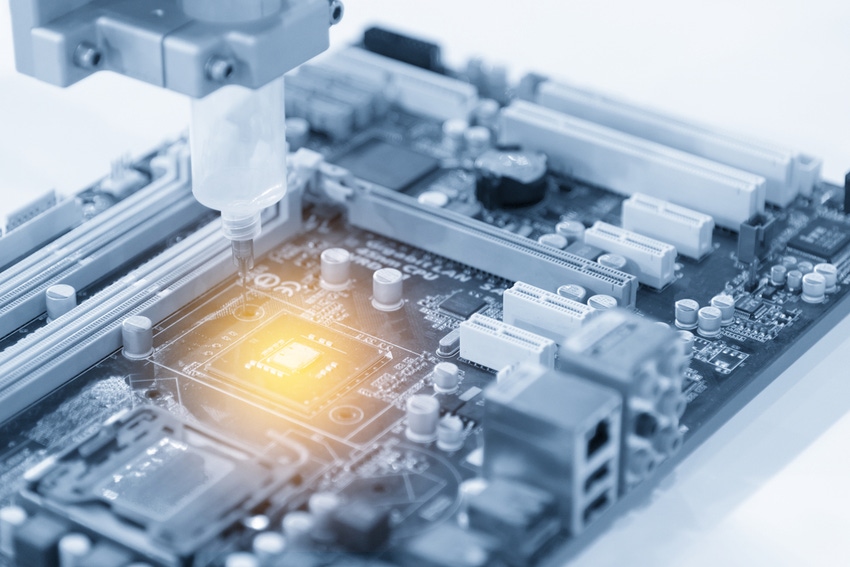Embedded ICs: Driving Forces Behind Smart Electronics
In the digital age, embedded systems are ubiquitous, ranging from simple household appliances to complex industrial automation equipment, all relying on Embedded Integrated Circuits (Embedded ICs) to perform their core functions. This article delves into the world of Embedded ICs, providing a comprehensive industry perspective from definitions, classifications, functions, to market prospects.
Definition of Embedded ICs
Embedded ICs are highly integrated microcircuits designed to perform computing and control tasks in specific devices or systems. Unlike general-purpose computer chips, Embedded ICs are typically optimized for specific application scenarios to meet special requirements for size, power consumption, performance, and cost.

Classification of Embedded ICs
Embedded ICs can be categorized into the following types based on their functions and application scenarios:
1. Microcontrollers(MCU): These are compact computers that integrate a processor core, memory, and I/O interfaces, widely used in automation and control applications.
2. Digital Signal Processors (DSPs): Processors specifically designed for rapid digital signal processing, commonly used in audio, video processing, and communication systems.
3. Field-Programmable Gate Arrays (FPGAs): These are programmable logic devices that allow users to configure their logic functions as needed, ideal for prototype design and rapid development.
4. Application-Specific Integrated Circuits (ASICs): Customized integrated circuits designed for specific applications, optimized for performance and power consumption, but typically with higher development costs.
Role and Application of Embedded ICs
Embedded ICs play a crucial role in electronic systems, providing not only the necessary computing power but also potentially including a variety of peripherals and interfaces to adapt to different application needs. The low power consumption and high performance characteristics of Embedded ICs make them highly reliable in critical applications, such as automotive and medical devices.
The application fields of Embedded ICs are extensive and include but are not limited to:
● Consumer Electronics: Smartphones, tablets, smartwatches, etc.
● Industrial Control: Automated machinery, robots, monitoring systems, etc.
● Automotive Electronics: Engine control units, anti-lock braking systems, in-vehicle infotainment systems, etc.
● Medical Devices: Pacemaker, blood glucose monitoring systems, medical imaging equipment, etc.
Popular Manufacturers and Products
The main manufacturers of Embedded ICs in the market include:
- Intel: Offers a wide range of microprocessors and controllers suitable for various embedded applications.
- Texas Instruments (TI): Known for its extensive range of DSPs and microcontrollers.
- NXP Semiconductors: Focuses on embedded solutions for automotive and industrial fields.
- STMicroelectronics: Provides a variety of microcontrollers and sensors suitable for consumer electronics and industrial applications.
Main Development Trends
Several key development trends in the field of Embedded ICs include:
1. 3D Packaging Technology: Enhancing integration and performance by stacking chips in the vertical direction.
2. Heterogeneous Integration: Integrating chips of different functions and processes into a system to optimize performance and cost.
3. Chiplet Technology: Improving manufacturing efficiency and flexibility by breaking down large SoCs into smaller, interconnected modules.
Conclusion
With the development of emerging technologies such as the Internet of Things, 5G, and autonomous driving, the Embedded IC market is expected to continue growing. Technological advancements and the expansion of application fields will further drive the demand for high-performance, low-power Embedded ICs.
Embedded ICs are an indispensable part of modern electronic devices, and their development and innovation will continue to drive technological progress and application expansion. With the continuous advancement of technology, we look forward to Embedded ICs bringing more intelligent, efficient, and secure electronic solutions in the future.
Recommended Models
● The AMD XC6SLX45T-3CSG324I is an FPGA product that offers powerful system integration capabilities and low total cost, making it ideal for high-throughput applications. The FPGA uses 45 nm CMOS technology and operates at 1.2V.
● Broadcom PEX8619-BA50BIG is a dedicated interface IC designed for applications that require high-speed data transfer and flexible port configurations, such as high-end servers, storage devices, networking devices, and high-performance computing systems.
● The PC28F256P30B85 is an Intel NOR flash memory ic with advanced features including multilevel cell technology, synchronous burst read mode with zero wait state, fast asynchronous access time, and multiple programming and erase options. For embedded systems that require high reliability, high density storage, and fast data access.
Website: www.conevoelec.com
Email: info@conevoelec.com








